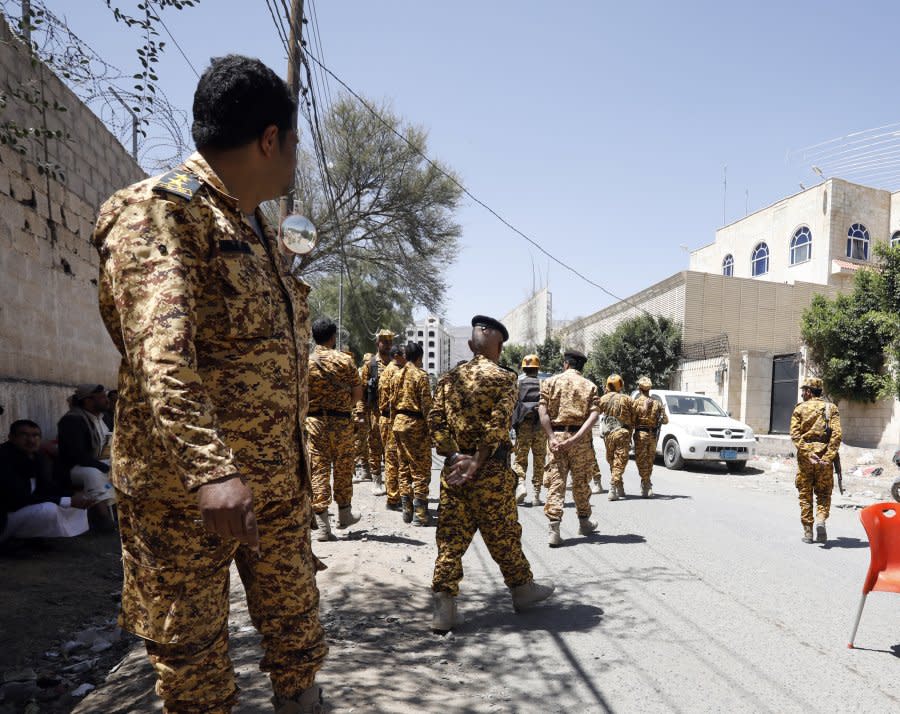HRW: Saudi Arabia security forces systematically killing Ethiopian migrants

Aug. 21 (UPI) -- Hundreds of Ethiopian migrants and asylum seekers have been killed by Saudi border guards while trying to cross into Saudia Arabia from Yemen in a 15-month period between March 2022 and June 2023, Human Rights Watch said Monday.
Should it subsequently transpire that it was Saudi government policy to murder migrants, the killings, which appeared to be ongoing, would be a "crime against humanity," said HRW which demanded Riyadh immediately revoke any policy of using lethal force.
As it published a 73-page report detailing a widespread and systemic pattern of targeting migrants which saw them killed with explosive weapons or shot, including many women and children, HRW called on the international community to push for accountability and the United Nations to launch an investigation.
Saudi border guards sometimes asked migrants what limb to shoot, and then shot them at close range. Saudi border guards also fired explosive weapons at retreating migrants as they tried to cross back into Yemen, HRW said.
The report was compiled using first-hand interviews with more than three dozen migrants and relatives and friends and analyzing hundreds of social media videos and photographs of dead and wounded migrants on the trails, in camps, and in medical facilities which were verified and geolocated with satellite imagery.
Geospatial analysis revealed eight makeshift burial sites within a three-mile radius of the Al Raqw migrant camp in Yemen, six of them on the Saudi side of the border, and burgeoning border security infrastructure.
Analysis of video and photographic evidence by independent forensics experts of the injuries of the wounded and dead found "clear patterns consistent with the explosion of munitions with capacity to produce heat and fragmentation," while others have "characteristics consistent with gunshot wounds" and, in one instance, "burns are visible."
Witnesses detailed an appalling litany of abuses including border guards beating migrants with rocks and iron bars, and in at least one instance, forcing them to rape young female migrants after murdering a migrant who refused to comply with an order to rape another female migrant.
HRW said the killings were happening out of view of the rest of the world while Saudi Arabia was spending billions on "sports washing" in an effort to clean up its reputation.
"Saudi officials are killing hundreds of migrants and asylum seekers in this remote border area out of view of the rest of the world," said HRW refugee and migrant rights researcher Nadia Hardman. "Spending billions buying up professional golf, football clubs, and major entertainment events to improve the Saudi image should not deflect attention from these horrendous crimes."
"Saudi border guards knew or should have known they were firing on unarmed civilians," Hardman said. "If there is no justice for what appear to be serious crimes against Ethiopian migrants and asylum seekers, it will only fuel further killings and abuses."
Ethiopians are brought to Yemen across the Gulf of Aden by people smugglers who then take then bring them to the Houthi rebel-controlled north of the country to cross into Saudi Arabia where some 750,000 Ethiopians already live and work.
Witnesses told HRW that Houthi forces colluded with smugglers and would extort money from them or move them to what migrants said were detention centers where people were mistreated and only released upon payment of an "exit fee."
There has been no official response from the Saudi Arabian government, but responding to a similar complaint from the U.N. in October it said it took the allegations seriously but strongly rejected the suggestion that the killings were systematic or widespread.
"Based on the limited information provided, authorities within the Kingdom have discovered no information or evidence to confirm or substantiate the allegations," was Riyadh's written response to the U.N..
A civil war has been raging in Yemen since 2014 between Shiite Houthi insurgents and the Sunni-led government of the Presidential Leadership Council, headed by Rashad al-Alimi, with political and military backing from Saudi Arabia.

